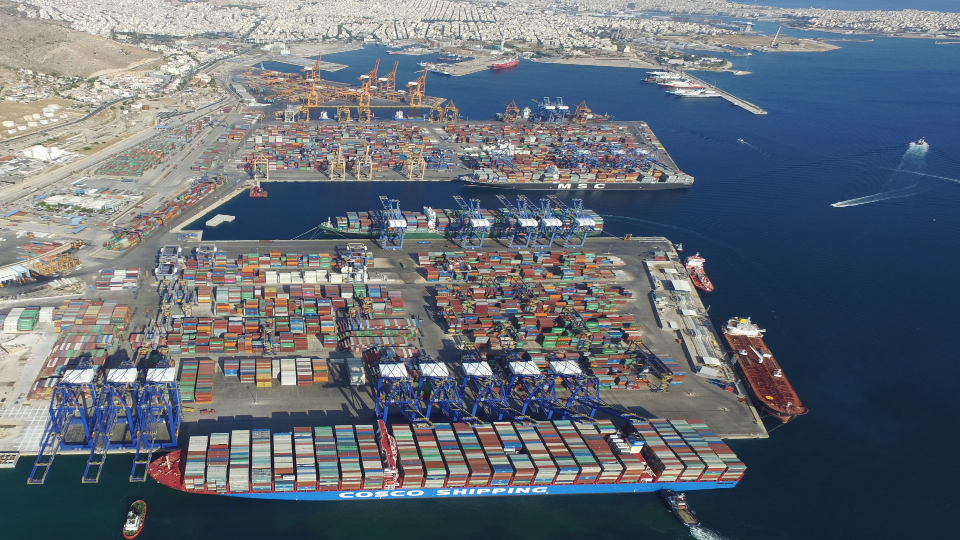COSCO Greece pushes for rail route reopening; safety concerns remain

COSCO, the owner of the Greek port of Piraeus, is pushing Hellenic Train and infrastructure manager OSE to reopen the rail route connecting the Neo Ikonio port terminal in Piraeus with the Thriasio freight and logistics centre at the outskirts of Athens. All this happens while rail traffic in Greece is moving slowly, if not at all, after the deadly accident at the beginning of March and amidst safety concerns that could see freight traffic stopping completely.
The route between the Neo Ikonio terminal and the Thriasio freight and logistics centre is short but crucial. This line allows COSCO and other freight operators to move cargo out of the port of Piraeus, consolidate it in Thriasio and then move it through Greece’s railway network. With this route closed, COSCO cannot dispatch containers from its port terminals.
Containers pile up
COSCO Greece sent a letter to Hellenic Train, OSE and the ministry of transport to stress the importance of reopening the route. “The company requests the immediate resolution of the issue and the line’s re-operation with one or two pairs of trains to the country’s borders per day. According to the Chinese company, that is the only way to release cargo stuck at Piraeus and the Thriasio station since early March.
More specifically, COSCO mentioned that since the evening that the deadly accident occurred in Tempi, a train with cargo “for important customers destined for Central Europe” has been “trapped” in the Thrisasio station and is even unable to move back to the Neo Ikonio terminal to dispatch cargo via sea.
What follows is unclear
COSCO’s letter to the parties concerned indicates that apart from safety concerns that do not allow the full resumption of railway operations in Greece, there is an issue of miscommunication on what companies should expect, at least in the short term. For example, a few days ago, Hellenic Train restarted operations in some parts of the network. According to Greek media, some companies like Goldair Cargo could run some trains.
Nevertheless, information from the Greek railway sector says that Hellenic Train decided to stop all rail freight operations again until further notice without an official and verified communication. However, this decision could reflect the truth since it coincided with the announcement that the second phase of operational relaunching was postponed due to the numerous technical and security issues in the Greek Railway network. The second phase was supposed to start on Monday, 27 March.
Also read:




